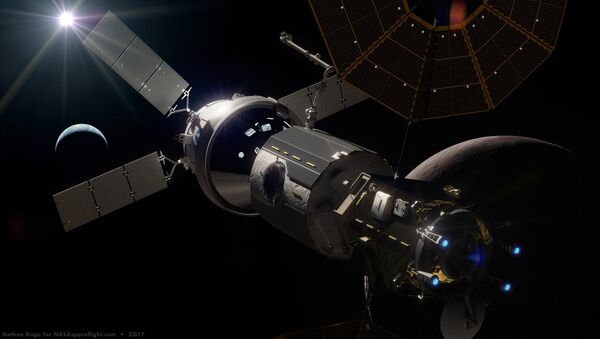Defense Secretary Gavin Williamson has vowed to bring the number of specialists working in the country’s defense space sector to 600 which is a 20- percent jump from what Britain currently has, The Guardian reported.
He has also said that that the Royal Air Force would be responsible for “command and control” of the nation’s space missions.
The strategy aims to safeguard UK operations against “emerging space-based threats,” such as the “jamming of civilian satellites used for broadcasters and satellite navigation to support military capabilities.”
“Satellite technology is not just a crucial tool for our armed forces but vital to our way of life, whether that be access to our mobile phones, the internet or television,” Gavin Williamson stated.
The new strategy will also assess Britain’s contribution to the Galileo program for a global navigation satellite system (GNSS) that is being created by the European Union, and to see how UK companies could benefit from developing an alternative system in what Gavin Williamson has described as “a crucial area.”
The space sector is seen as a vital part of the British economy.
“With the launch of this strategy, we are setting our aspirations much higher, to ensure that our industry continues to benefit from this growth in satellite technology,” Defense Minister Guto Bebb said during the Defense Space Conference in London on Monday.
“We are investing millions into Britain’s most innovative companies to help us launch forward in the space domain,” he added.
The Ministry of Defense is now working on a £3 billion ($4 billion) British satellite navigation system in the event the UK is shut out of the European Union’s Galileo network.
The move reflects a deepening row with the EU which has doubts whether the UK can continue to be trusted with Europe's most sensitive security information after Brexit.
The current state of the UK military needs much to be desired with the UK's own defense think tank, the Center for Historical Analysis and Conflict
Research (CHACR), warning that Britain is "effectively incapable" of launching any major offensive against a belligerent foe and defense experts saying that the country will have to rely on NATO in any major military engagement.
It has also been reported that all seven of the UK's attack submarines are out of operation.
READ MORE: UK to Invest 2.5Bln for Submarine Construction — Defense Secretary
Last year The Sun newspaper wrote that that five submarines, including HMS Triumph, Torbay, Artful, Talent and Trenchant, were under repair after breaking down while HMS Ambush was being fixed after crashing into a merchant ship in the Gibraltar area in July 2016.
Moreover, a report issued by the British American Security Information Council said that the UK's Trident nuclear submarines are vulnerable to cyberattacks which could have catastrophic consequences, including the possibility of the unauthorized release of nuclear missiles.



